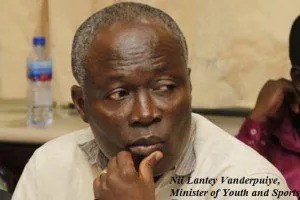Former MP and DRIP National Coordinator, Nii Lante Vanderpuye, has revealed his deep disappointment over the swift and poorly scrutinized passage of the bill that handed over the Songor Salt Project to Electrochem Ghana Ltd.
Speaking on GHONE TV, Nii Lante Vanderpuye said only 12 MPs were present in the chamber when the bill was passed — just four to five hours after the document was introduced. “I felt sick… it was so disappointing. My heart was heavy,” he said.
He lamented that the bill lacked provisions to safeguard the interests of the indigenous people of Ada and the nation at large. “The sort of things I was expecting to see in the bill… they weren’t there. It’s like the people were given a raw deal.”
Nii Lante Vanderpuye criticized Parliament’s internal processes, noting that key decisions are often left to committee members, excluding other MPs from meaningful influence. “Something like this deserved more extensive scrutiny,” he said, adding that several other bills were similarly rushed through during that parliamentary term.
Nii Lante Vanderpuye described the day Parliament approved the controversial lease of the Songor Salt Project to Electrochem Ghana Limited as “one of the most disappointing days” in the nation’s legislative history.
The former Member of Parliament for Odododiodioo and a staunch advocate for indigenous rights, Nii Lante Vanderpuye expressed deep regret over the decision, which has sparked widespread public concern and opposition from local communities in the Ada area.
He believes the handing over of Songor Salt to Electrochem was not just a policy misstep but a betrayal of the people of Ada, their history, and their economic lifeline. “That day marked a low point in our Parliament’s duty to protect the interest of its citizens.”
The lease agreement, which grants Electrochem Ghana Ltd control over the salt-rich lagoon in the Greater Accra Region, has been mired in controversy since its inception. Critics argue that it disenfranchises local salt miners who have traditionally depended on the lagoon for their livelihood. Proponents, however, claim it will bring industrial development and job opportunities to the area.
The Songor salt lease has remained a flashpoint in Ghana’s resource governance debate, with many accusing government of favoring corporate interests over local livelihoods.
The Songor Lagoon, one of Ghana’s most productive salt pans, has long been the center of disputes between traditional owners, the government, and private interests. In recent years, tensions have risen over state-backed efforts to commercialize and industrialize the resource without what critics say is adequate stakeholder engagement.
